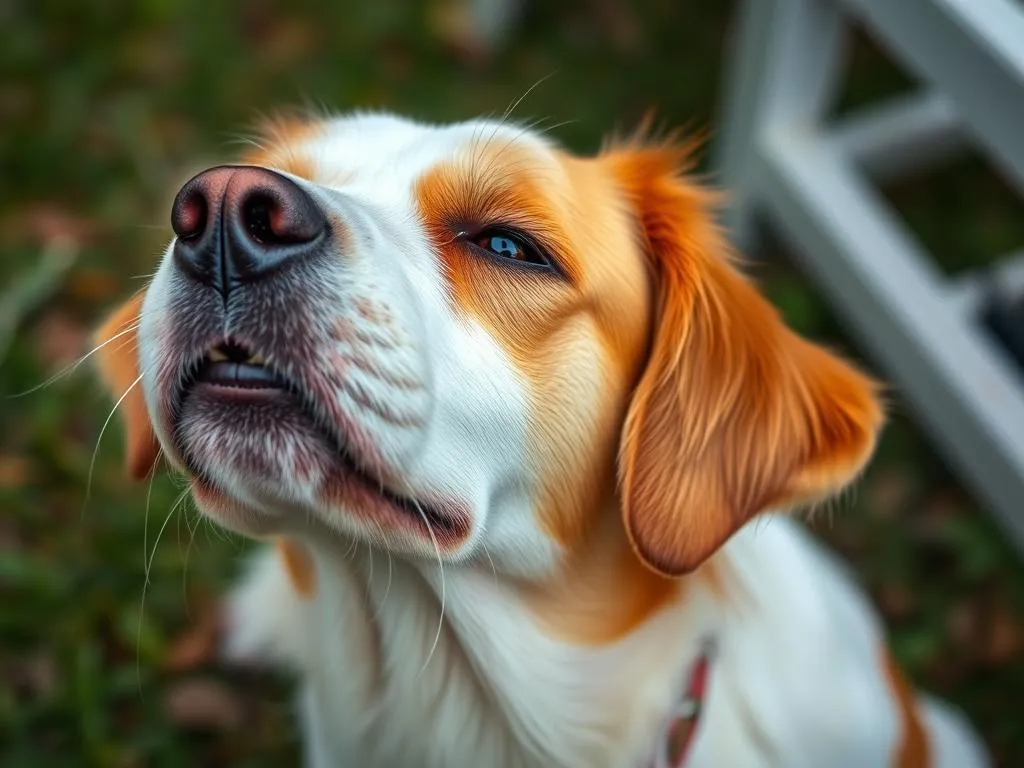
Introduction
Dog health care encompasses a variety of topics, including nutrition, exercise, and understanding canine behavior. One of the most intriguing yet often misunderstood behaviors is the act of licking. As dog owners, understanding this behavior is crucial not only for the betterment of our pets’ lives but also for their health. So, why do dogs lick themselves? This article will explore the various reasons behind this behavior, why it matters, and what you as a pet owner can do to ensure your dog’s well-being.
We will delve into the nature of canine behavior, common reasons behind licking, when to be concerned, how to manage excessive licking, and preventive care for your dog’s health. By the end of this article, you will have a comprehensive understanding of why your dog may be licking themselves and what steps you can take to keep them healthy and happy.
Understanding Dog Behavior
The Nature of Canine Behavior
Dogs are complex creatures with a range of innate behaviors that are deeply rooted in their evolutionary history. One of these behaviors is grooming, which is not only a means of maintaining hygiene but also serves various social functions. In the wild, canines groom themselves to keep their fur clean and free of parasites, which is essential for survival. Understanding this aspect of dog health care can help owners appreciate the importance of licking as a natural behavior.
Communication Through Licking
Licking is more than just a grooming behavior; it also serves as a form of communication among dogs. Through licking, dogs can express affection, submission, and even comfort. For instance, a dog might lick another dog as a sign of respect or to soothe them in moments of stress. This form of communication can extend to human-dog interactions as well. A dog licking its owner can be a sign of love and companionship.
Common Reasons Dogs Lick Themselves
Natural Grooming
One of the primary reasons dogs lick themselves is for natural grooming. Just like cats, dogs use licking as a way to clean their fur and skin. This behavior is essential for personal hygiene, helping to remove dirt, debris, and loose fur. Regular grooming through licking helps to keep a dog’s coat healthy and can even stimulate the production of natural oils, which helps to maintain skin health.
Allergies and Skin Irritations
While licking can be a normal grooming behavior, it can also indicate underlying health issues, particularly allergies and skin irritations. Dogs can be allergic to various substances, including certain foods, environmental allergens like pollen, or even flea bites. Common signs of allergies include excessive licking, scratching, and visible skin irritations. If your dog seems to be licking a specific area more than usual, it might be a sign of discomfort or an allergic reaction that requires attention.
Boredom and Anxiety
In some cases, licking can be a behavioral issue stemming from boredom or anxiety. Dogs are active creatures that require mental and physical stimulation. When they are left alone or do not get enough exercise, they may resort to licking as a way to cope with their boredom. Similarly, anxious dogs may lick themselves excessively as a self-soothing mechanism. Recognizing the signs of boredom or anxiety is crucial for addressing the underlying cause of the licking.
Medical Conditions
Certain medical conditions can also lead to excessive licking. Infections, skin conditions, or parasites like fleas and ticks can cause discomfort that prompts your dog to lick. For instance, if a dog has a skin infection, it may lick the affected area in an attempt to relieve discomfort. Identifying abnormal licking patterns is essential for determining whether a medical issue is at play.
When to Be Concerned About Licking
Signs of Overlicking
It’s important to differentiate between normal licking and excessive licking. Overlicking can lead to physical issues such as redness, sores, or hair loss in the affected areas. If you notice your dog licking a specific spot repeatedly, it could indicate an issue that needs to be addressed. Regular monitoring of your dog’s grooming habits can help you identify any concerning changes early on.
Potential Health Risks
Excessive licking can pose several health risks, including skin infections that arise from the constant irritation of the skin. Prolonged licking can damage the skin barrier, making it more susceptible to bacteria and fungi. Furthermore, if a dog licks an area that is already injured, it can complicate healing and lead to more severe health problems. Therefore, keeping an eye on your dog’s licking habits is essential for maintaining their overall health.
How to Manage Excessive Licking
Consult a Veterinarian
If you notice that your dog is licking excessively, the first step is to consult a veterinarian. A professional evaluation is crucial for diagnosing any underlying medical issues. Your veterinarian may conduct skin tests, allergy tests, or other examinations to determine the root cause of the licking behavior. Early intervention can often mitigate more severe health problems down the line.
Behavioral Interventions
If the licking is determined to be behavioral, there are various techniques you can implement to reduce boredom and anxiety in your dog. Engaging your dog in more physical activity, such as daily walks or playtime, can help alleviate boredom. Additionally, interactive toys or puzzle feeders can stimulate your dog mentally and keep them occupied. Training methods that redirect licking behavior can also be effective. For example, teaching your dog alternative behaviors when they feel the urge to lick can help break the habit.
Home Remedies and Treatments
For cases where licking is due to minor skin irritations, there are several home remedies and over-the-counter treatments available. Natural remedies like oatmeal baths can soothe irritated skin, while topical treatments can provide relief from itching. However, it’s essential to consult your veterinarian before using any home remedies to ensure they are safe and appropriate for your dog’s specific situation.
Preventive Care for Dog Health
Regular Vet Check-Ups
Routine veterinary check-ups are critical for maintaining your dog’s health. Regular assessments can help catch potential issues before they escalate. During these visits, your veterinarian will check your dog’s skin and coat, ensuring they are healthy and free from parasites. Vaccinations and preventive treatments are also essential components of your dog’s healthcare routine.
Proper Nutrition
A dog’s diet plays a significant role in their overall health, including skin health. Feeding your dog a well-balanced diet that includes high-quality protein, healthy fats, and essential vitamins can improve their coat and skin condition. Consider consulting your vet for recommendations on dog food that supports optimal health, especially if your dog has specific dietary needs.
Exercise and Mental Stimulation
Physical activity is vital for a dog’s behavioral health. Regular exercise helps to prevent boredom and reduce anxiety, which can, in turn, diminish excessive licking behaviors. Engaging your dog in activities like fetch, long walks, or even agility training can help keep them both physically and mentally stimulated. Incorporating brain games and training exercises can also provide necessary mental engagement.
Conclusion
Understanding why dogs lick themselves is important not just for the sake of curiosity but for the overall health and well-being of your pet. Licking can serve various functions, from grooming to communication, but it can also signal underlying health issues. By being observant and proactive in your dog’s care, you can help maintain their health and happiness.
As a responsible dog owner, it’s essential to recognize when licking is normal behavior and when it may be a sign of a more serious problem. Regular vet check-ups, proper nutrition, and sufficient exercise are all key components of preventive care that can help ensure your dog leads a healthy and fulfilling life.
By understanding the reasons behind licking and taking appropriate action, you can significantly contribute to your dog’s overall well-being.









